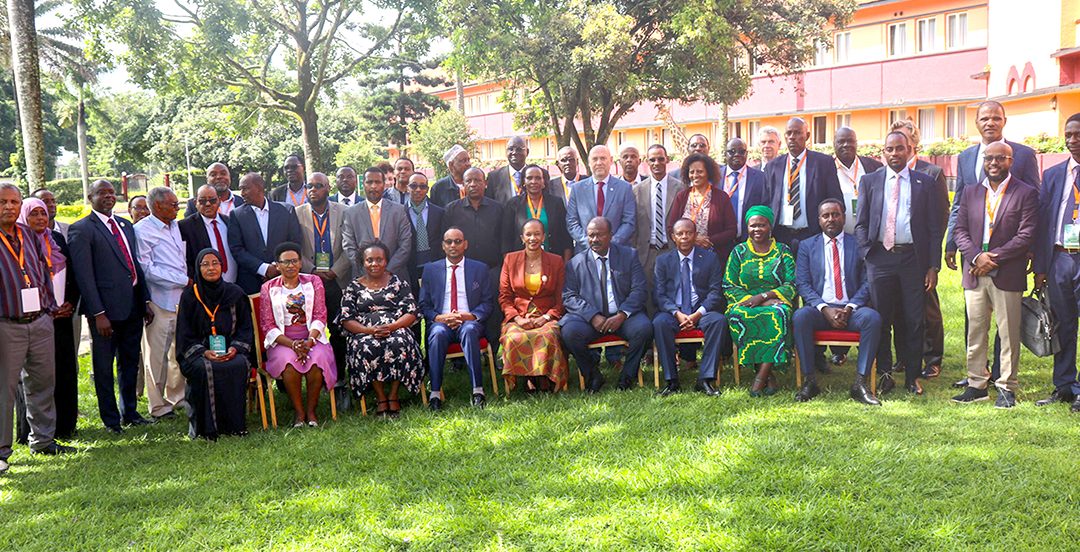November 25, 2023 (ENTEBBE, Uganda): The 16th IDDRSI Platform Steering Committee meeting, a significant milestone in the journey towards disaster resilience in the region, was inaugurated on November 22 by H.E. Hon. Esther Anyakun, Minister of State for Disaster Preparedness and Refugees, in Entebbe.
Chaired by Ms. Lucy Daxbacher, the IGAD Head of Mission to Uganda and Mr. Awira Anthony, the Director of Planning, Coordination, and Partnership Division at IGAD, the meeting saw the active participation of key stakeholders and marked the Tenth Anniversary of the IGAD Drought Disaster Resilience and Sustainability Initiative (IDDRSI).
In a momentous acknowledgment, H.E. Hon. Anyakun, the Minister of State for Disaster Preparedness and Refugees of Uganda, extended heartfelt congratulations to the IDDRSI Platform and the Intergovernmental Authority on Development (IGAD) for achieving a remarkable milestone—10 years of dedicated efforts in promoting resilience against drought. The esteemed minister wished the IDDRSI Platform Steering Committee (PSC) continued success in the years ahead, envisioning more productive and engaging endeavors as the region strives to “consolidate the path to resilience and sustainability” by drawing insights from a decade of experience.
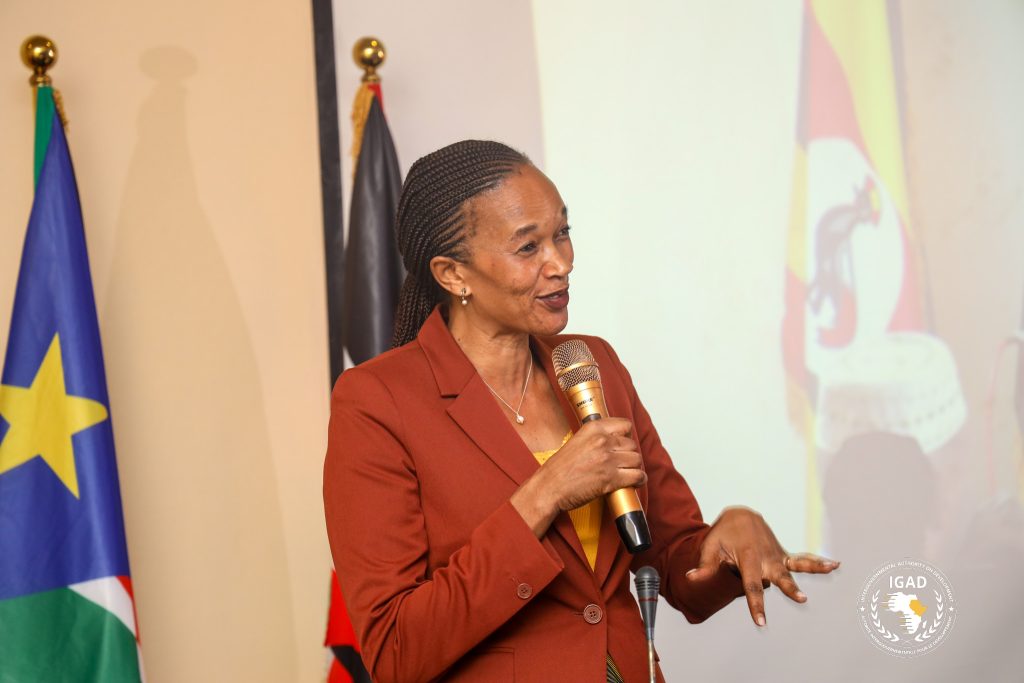 Hon. Anyakun shared insights into Uganda’s commitment to resilience-building, revealing the implementation of the second 5-year Country Programming Paper (CPP). Emphasizing the focus on “Consolidating the Path to Resilience and Sustainability,” the minister highlighted the second phase’s strategic approach in building upon the foundation laid by the initial CPP. The new phase particularly addresses key constraints associated with managing drought emergencies, reflecting the nation’s dedication to proactive disaster preparedness.
Hon. Anyakun shared insights into Uganda’s commitment to resilience-building, revealing the implementation of the second 5-year Country Programming Paper (CPP). Emphasizing the focus on “Consolidating the Path to Resilience and Sustainability,” the minister highlighted the second phase’s strategic approach in building upon the foundation laid by the initial CPP. The new phase particularly addresses key constraints associated with managing drought emergencies, reflecting the nation’s dedication to proactive disaster preparedness.
The Minister underscored the tangible impact of Uganda’s commitment, revealing that a total of 30 projects have been successfully implemented under the Uganda CPP. This significant achievement comes with a robust estimated investment portfolio of USD 3.6 Billion. The diverse range of projects encompasses crucial areas such as water for production, irrigation, climate resilience, solar-powered water supply, farm income enhancement, forestry conservation, drought resilience, pastoral livelihood improvement, market and agricultural trade improvement, livelihoods diversification, peace and conflict resolution, and disaster risk management, among others.
As H.E. Hon. Anyakun aptly expressed, this comprehensive approach reflects Uganda’s dedication to addressing multifaceted challenges and fostering sustainable solutions. The minister’s remarks serve as a testament to the country’s unwavering commitment to building a resilient future, not only for Uganda but for the entire region.
Representing H.E. Dr. Workneh Gebeyehu, the IGAD Executive Secretary and Chair of the IDDRSI Platform Steering Committee, Ms. Lucy Daxbacher, the IGAD Head of Mission to Uganda, underscored the continued vulnerability of the IGAD region to climate change impacts. Prolonged conflicts, high population pressure, and a subsistence economic base make the region susceptible to severe consequences. She highlighted the unprecedented drought experienced in the last four years, leading to five consecutive failed cropping seasons, with rangelands transformed into arid expanses. The grim statistics included the loss of 13.2 million livestock, triggering hunger and displacements, especially in pastoral communities along border areas.
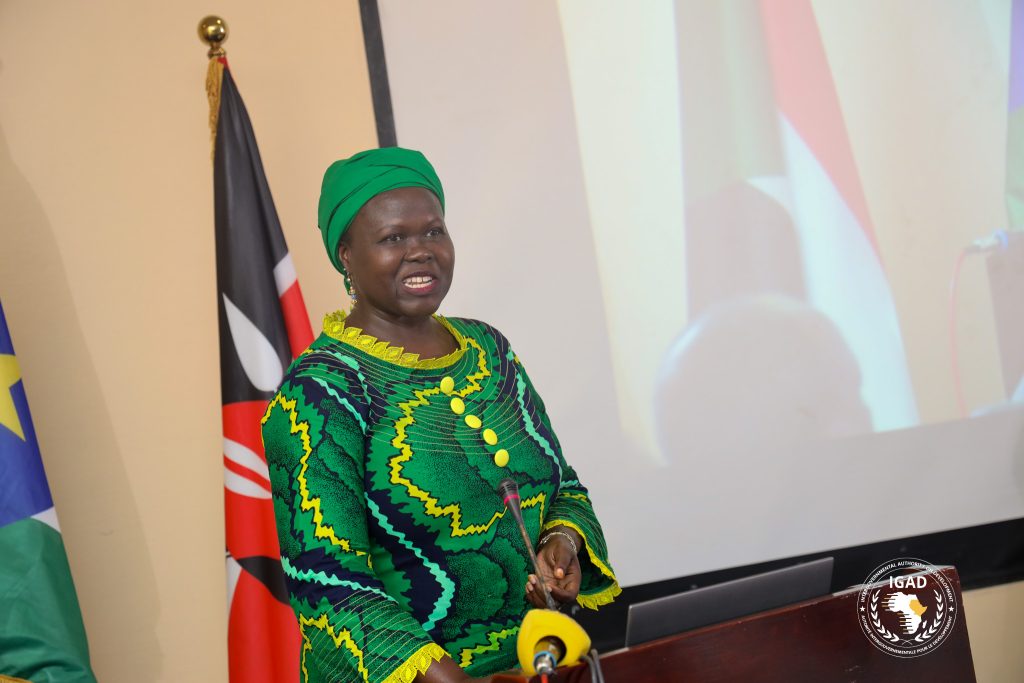
Acknowledging the collective efforts to address these challenges, Mrs Daxbacher cited encouraging regional reports indicating a gradual decline in the number of food-insecure people from the peak of 55.5 million in 2022 to 47.3 million in October 2023. Despite this positive trend, she emphasized the urgent need for intensified humanitarian responses and increased investments in long-term resilience building to address the persisting concern of 47.3 million people requiring urgent food assistance.
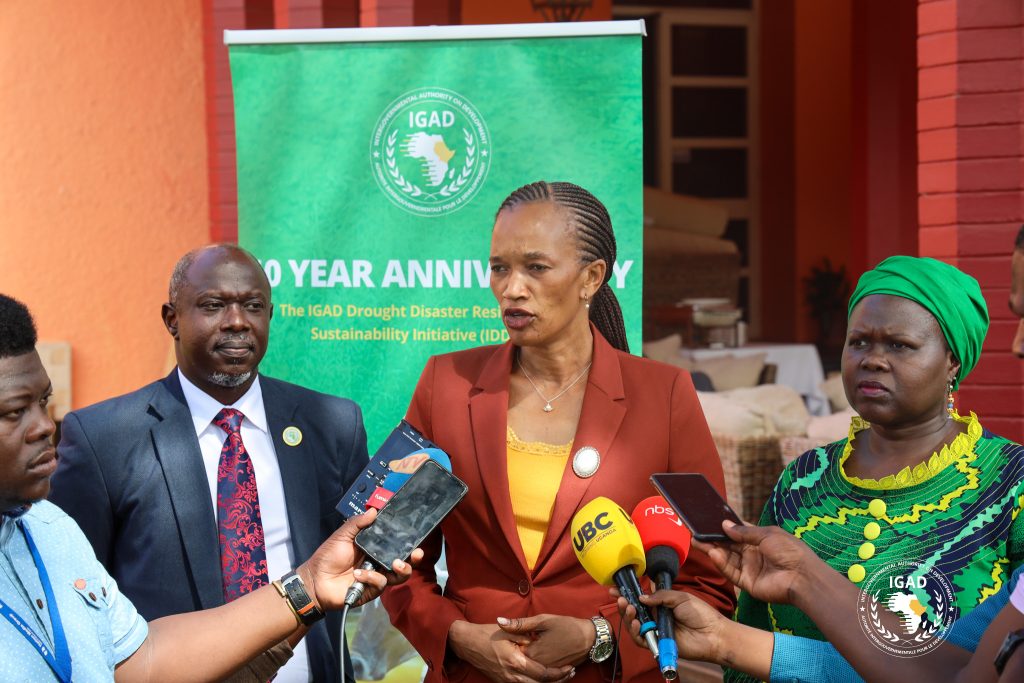
Expressing gratitude for IGAD’s leadership over the past decade, Members of the Steering Committee commended the organization for coordinating the platform, including the two years spent mobilizing resources for flagship projects. Recognizing the challenges faced by communities in arid and semi-arid lands due to climate change, the Steering Committee members called for sustained efforts in building resilience.
The meeting brought together key partners, including the IGAD Member States (Djibouti, Ethiopia, Kenya, Somalia, South Sudan, Sudan, and Uganda), Development Partners (Sweden, USAID, Germany/GIZ), UN Agencies (FAO, UNDP, UNICEF), IGAD NGO Forum, Inter-Agency Working Group, Somali NGO Consortium, the Alliance of Bioversity International & CIAT, and the IGAD Secretariat. Under the theme “Consolidating the Path to Resilience and Sustainability: Lessons Learned from a Journey of Ten Years,” the discussions focused on strategies to further strengthen disaster resilience in the region.
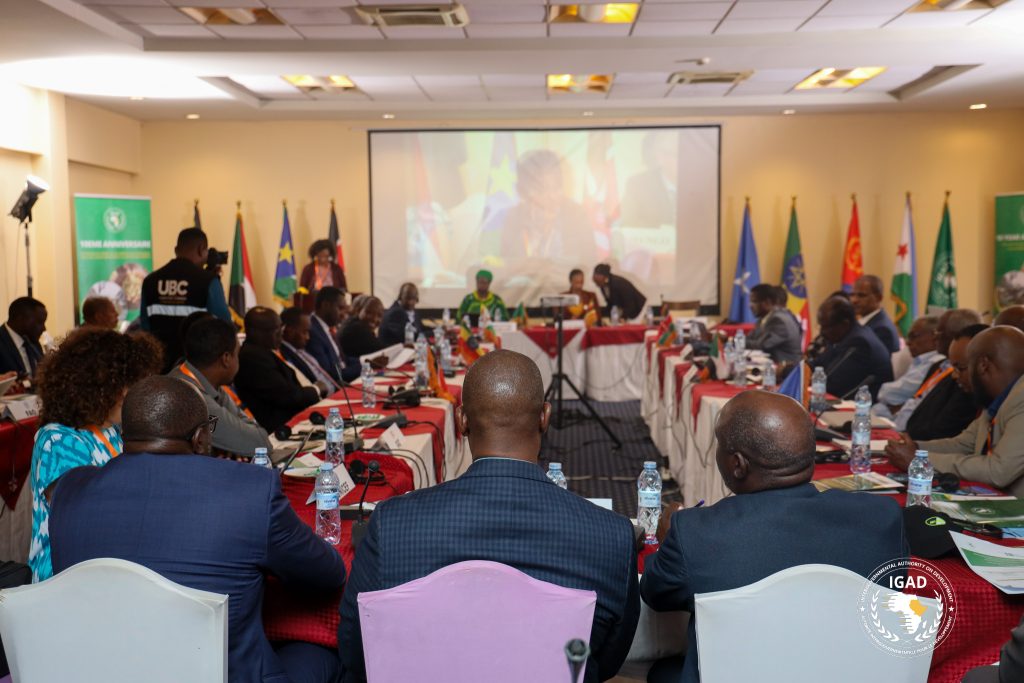 At the conclusion of the three-day platform steering committee meeting and General Assembly, a communique was released outlining the commitments and resolutions aimed at advancing the goals of the IDDRSI in the coming years.
At the conclusion of the three-day platform steering committee meeting and General Assembly, a communique was released outlining the commitments and resolutions aimed at advancing the goals of the IDDRSI in the coming years.
Download Communique and recommendations.
###
